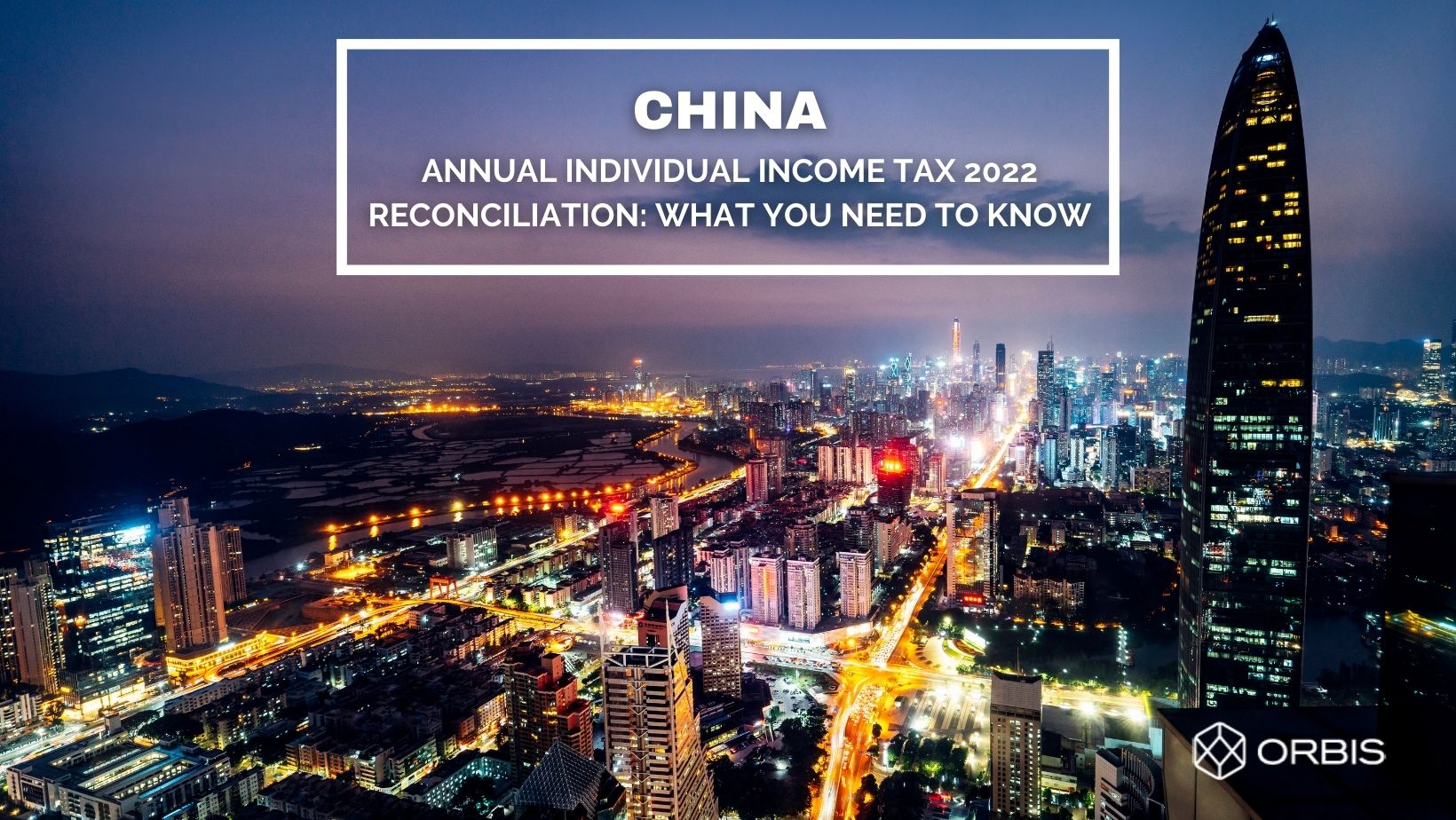April, May, and June are the peak season in China for the annual individual income tax (IIT) reconciliation and settlement.
Annual IIT reconciliation is a process applied to individual taxpayers on their comprehensive income (an individual’s combined income of wages and salaries, remuneration from labor services and royalties), to make sure their IIT paid in the previous tax year is accurate.
Under China’s tax laws and regulations, individuals who stay in China for 183 days or more during a calendar year are regarded as resident taxpayers and should complete the annual IIT reconciliation process during the period of March 1 to June 30, regardless of being Chinese or foreigners.
In practice, taxpayers need to pay attention to the annual IIT reconciliation if they fall under one of the following circumstances:
- Taxpayer who paid an amount in advance within a tax year that is less than the tax payable amount; and
- Taxpayer who applied for a tax refund.
- Taxpayer derives income from two or more sources, changes company, or takes an employment gap during the tax year.
- Taxpayer obtains varies type of income (for example get both wages and salary, labor services, and royalties in a tax year).
- Taxpayer obtains overseas income.
While IIT for non-tax residents is calculated based on each month’s salary and adopts the monthly comprehensive income tax rate, for tax residents, IIT is calculated on accumulated salary and adopts the annual comprehensive tax rate. As the IIT is based on accumulated salary, tax residents will be subject to a lower tax rate at the start and then be liable for higher tax rates as salary accrues by month.
In order to lighten the burden of taxpayers, annual settlement may be exempted if the middle/low-income taxpayers meet any of the following circumstances:
- Taxpayers who need to pay supplementary tax but whose annual comprehensive income does not exceed RMB 120,000;
- The amount of supplementary tax payable by taxpayers in annual settlement does not exceed RMB 400;
- The amount of tax paid in advance is consistent with the amount of tax payable in the year or the taxpayer does not apply for the annual consolidated tax refund.
This year, in 2022, China central and local governments issued additional support measures to ease the financial burdens for ITT taxpayers:
- Taxpayers can now deduct the expenses related to the care of infants and children under the age of 3 at a fixed rate of RMB 1,000 per month for each child or infant, from the month of birth to the month before the child turns 3 years old. The deduction can be enjoyed 100% by one of the parents, or both parents can deduct 50% each. Taxpayers can require employers to include the deduction at the monthly withholding of the individual income tax or during the annual settlement.
- The preferential ITT for the annual one-time bonus, which was about to expire by the end of 2021, has been extended to the end of 2023. IIT on annual one-time bonus may be calculated without aggregating it with one’s comprehensive income, and based on the marginal tax rate applicable to 1/12 of the annual one-time bonus amount (the marginal tax rate varies depending on the quantum of income, so this calculation approach lowers the marginal rate applicable).
- The non-taxable allowances regime for foreign individuals has also been extended to December 31, 2023.
Please do not hesitate to contact our team at contact@orbis-alliance.com to help you to smoothly report your IIT status and make the annual reconciliation properly as per the regulations in Mainland China.

 English
English
 Français
Français  Español
Español 